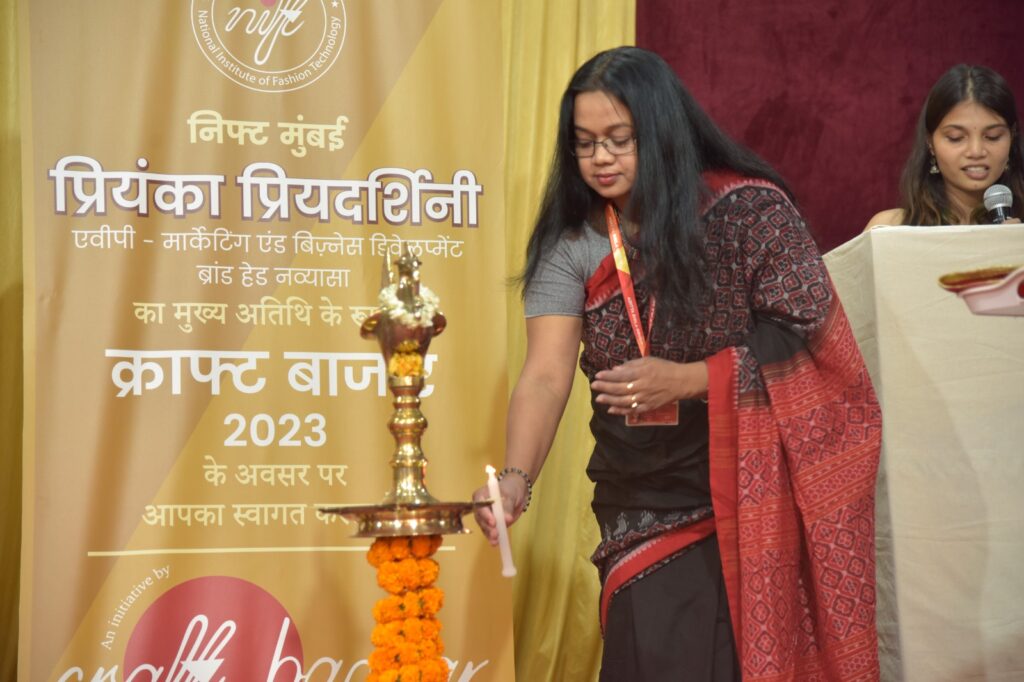
Mumbai, 11th April 2023 (GNI): National Institute of Fashion Technology, Mumbai, organized the HLHC exhibition, ‘Craft Bazaar’ for the promotion & sale of authentic handloom and handicraft products. Under the craft cluster initiative program, the institute created a marketing platform for artisans and weavers. The craft bazaar, an exhibition cum sale, is organized at Kishanchand Valecha Hall, Juhu, on the 11th & 12th of April, 2023, to celebrate handlooms and Handicrafts of India. NIFT invited artisans and weavers from different states of India: Karnataka, Maharashtra, Madhya Pradesh, Delhi, Gujarat, Bihar, Andhra Pradesh, Kashmir, and Uttar Pradesh to put up their HLHC products on display. In the craft bazaar, artisans/weavers from various clusters of India are participating in the Event. To name a few: Bidri craft from Karnataka, Lokar (Sheep wool) craft from Bihar, Kolhapuri chappal and Leather products from Maharashtra, Banjara craft from Latur, Maharashtra, Chanderi weaves from Madhya Pradesh, Gond Tribal painting from Madhya Pradesh, Hastkargha- Shibori from Delhi, United artisans of Kutch, Bhujodi handloom from Gujarat, Solapur Wall hanging from Maharashtra, Paithani weaves from Aurangabad Maharashtra, Himroo craft from Aurangabad Maharashtra, Chitrakathi Painting from Maharashtra, Applique from Gujarat, Terracotta from Maharashtra, Bhujodi craft from Bhuj, Gujarat, Hupari Silver jewellery from Maharashtra, Leather puppet craft from Andhra Pradesh, Glass roots from Agra, Uttar Pradesh, and Special Hands of Kashmir: Sozni from Kashmir.
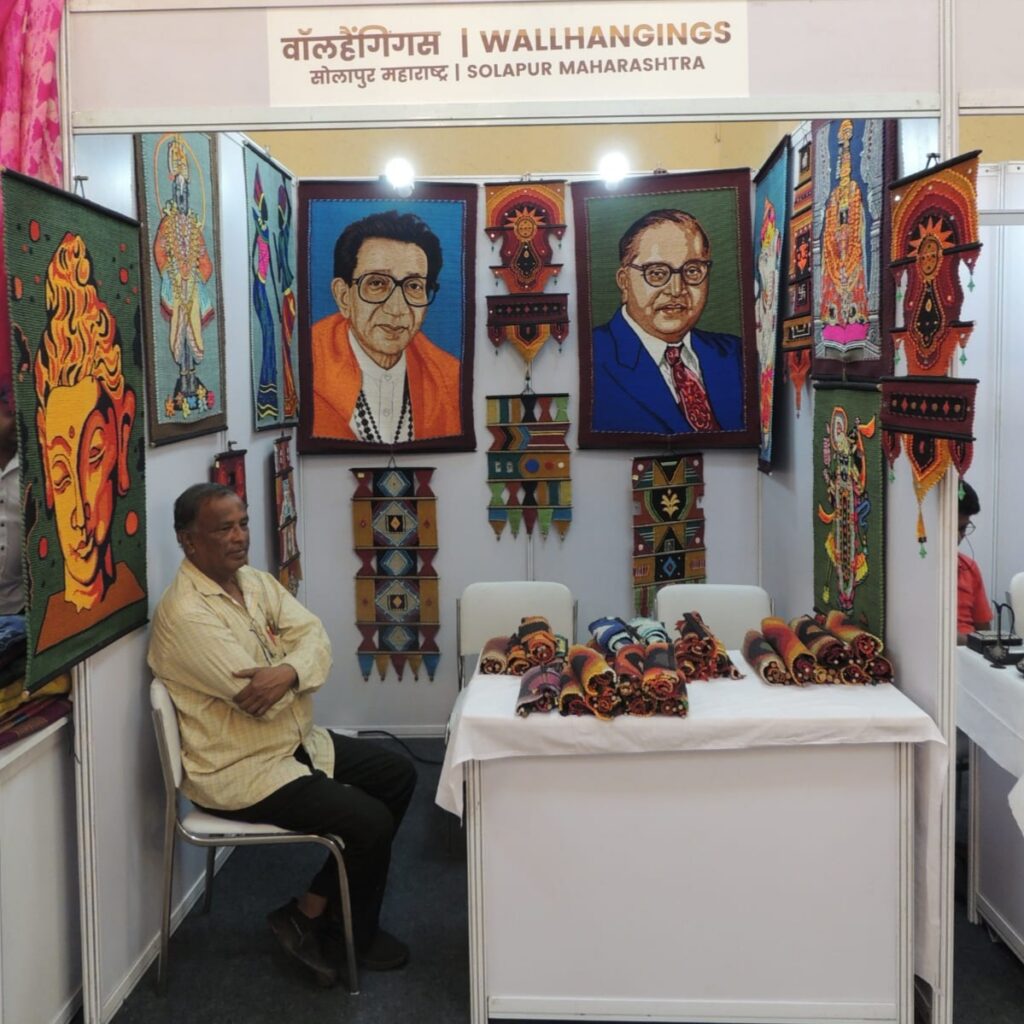
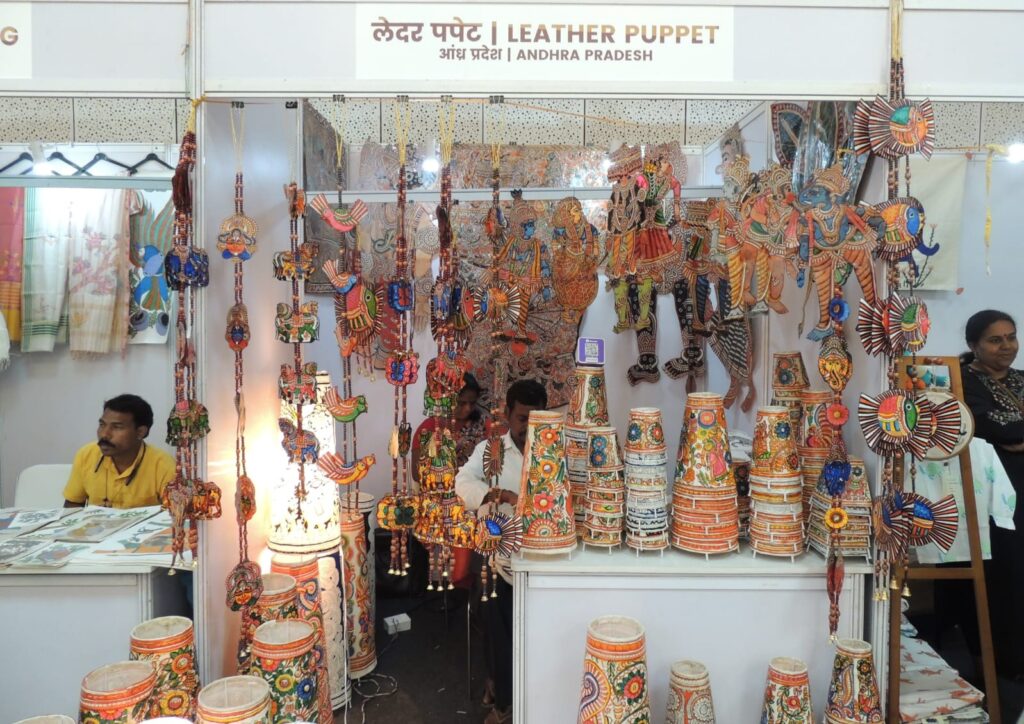
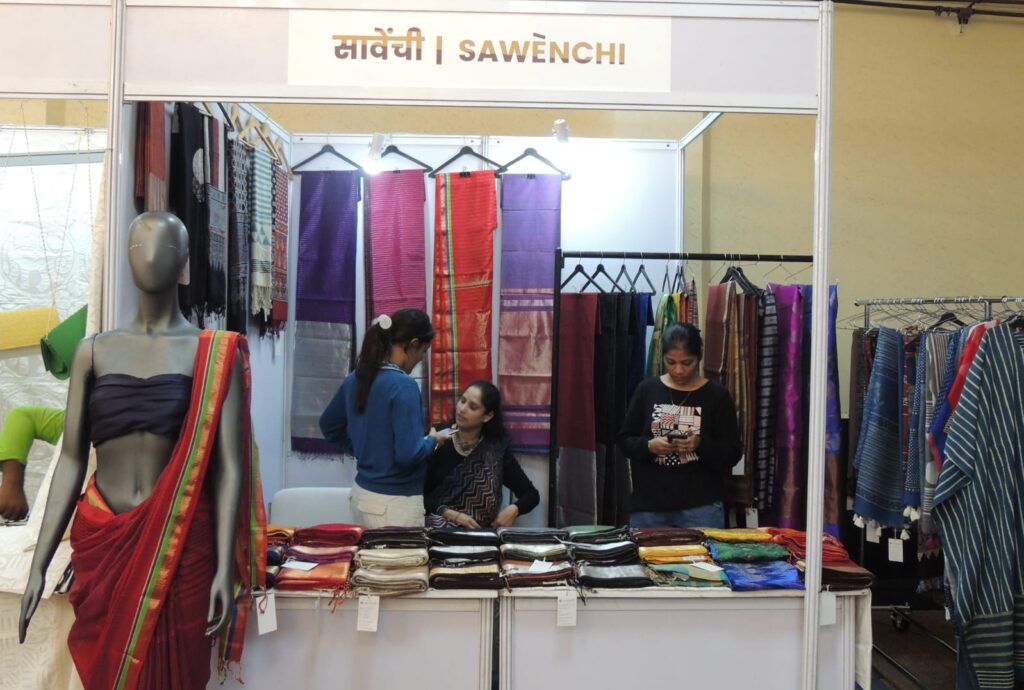
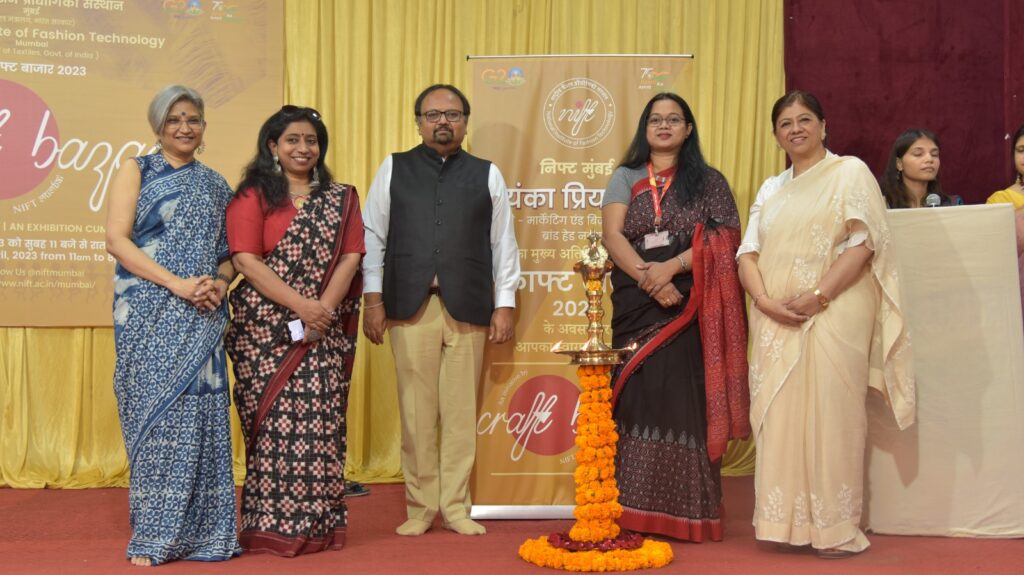
The Chief Guest, Smt. Priyanka Priyadarshini, AVP- Marketing and Business Development Brand Head Navyasa, will inaugurate the formal function of the craft bazaar.
The Director NIFT Mumbai Prof. (Dr.) Pawan Godiawala mentioned that NIFT focuses on providing its students with an immersive interaction with India’s handicraft and handloom heritage, offering a unique balance between traditional values and contemporary thought processes, emphasizing innovation and creativity. He further mentioned that the Craft Cluster Initiative of NIFT has provided the students with continuous exposure to Indian culture and traditional handloom and handicraft clusters, thus providing an opportunity for creative innovation and experimentation at the grass root level. Through this craft exposure, NIFT students have endeavoured to be ‘Young Change Agents,’ utilizing the skills of the handloom and handicraft sectors to develop niche contemporary products. Such exposure and interactions have provided a stronger rural connection and a greater understanding and appreciation of Indian culture and aesthetics to the young design professionals.
The Handicrafts Sector plays a significant & important role in the country’s economy. It employs a vast segment of craftspeople in rural & semi-urban areas and generates substantial foreign exchange for the country while preserving its cultural heritage. Handicrafts have great potential, as they hold the key for sustaining not only the existing set of millions of artisans spread over the length and breadth of the country but also for the increasingly large number of new entrants in the crafts activity. Presently, handicrafts contribute substantially to employment generation and exports. The Handloom Sector is one of the most significant unorganized economic activities, and it constitutes an integral part of the rural and semi-rural livelihood engaging over 35 lakh persons. The sector employs over 25 lakh female weavers and allied workers, making it an essential source of women’s economic empowerment.
NIFT students are participating in the exhibition and will put up their stalls of handmade, sustainable products: ‘NIFT ke pitaarese.’ The booth includes Handcrafted products made by crochet, knitting macrame, Handmade Jewellery, Crochet tops, etc., for sale.
Tribal Cooperative Marketing Development Federation of India (TRIFED), a national-level apex organization functioning under the administrative control of the Ministry of Tribal Affairs, is participating in the Event. Its core objective was to focus on the socio-economic development of tribal people in the country by marketing the development of tribal products such as metal crafts, tribal textiles, pottery, tribal paintings, and pottery.
The Khadi and Village Industries Commission (KVIC), Ministry of Micro, Small, and Medium Enterprises, Govt. of India is also participating in the craft Bazaar to promote the sale and marketing of khadi and products of village industries and handicrafts.
Many designers and Brands work closely with the artisans and weavers for product diversification. ‘Sayali Rajadhyaksha’ and ‘Authentic Lucknawis by Shivani’ will mark their presence in the exhibition.
The Tisser Artisans Trust works towards empowering women artisans across India. It has a network of artisans, Producers groups, and SHGs. A total of 5750 Rural Women Artisans from various craft clusters work together. Tisser supports women artisans through training & capacity building, market linkages & establishing supply chains. Tisser’s experienced team focuses on fundraising through various methods such as government grants, acceleration and incubation programs, and much more. It enables the circulation of funds in the market by providing livelihood and income generation opportunities to rural artisans.
Sawenchi brand will put up its exhibition, which collaborated with weavers and artisans from various parts of India, including Dabu printers from Jaipur, Maheshwari weavers, and Ajrakh block printers from Kutch. By working with these artisans, the brand aims to preserve India’s rich cultural heritage and ensures that its products are eco-friendly.
Kakolisembroidery brand is participating in the exhibition. It makes hand-embroidered products from scratch by sourcing fabrics from all over the country directly from the Weavers of Kutch, Koraput, Telangana, and Ponduru Khadi Village. It contributes to the weavers’ livelihood and encourages them to develop new hand embroidery techniques.
The Forest Child brand prints fabric by artisan families from Mumbai & Jaipur. Artisans of an NGO make their hand crochet toys. It upcycles products from material remains into valuable products by artisans from the NGO.
Mumbai-based Renu brand will exhibit their products, which work with Bavanbuti weavers from Bihar and Jamdani weavers from West Bengal. It promotes handlooms to increase weavers’ income and boost their confidence. For women empowerment, over 90% of their crafts persons, artisans, and designers are women. Ends GNI SG

Be the first to comment on "NIFT Mumbai organized Craft Bazaar to uplift the weavers and artisans of India"